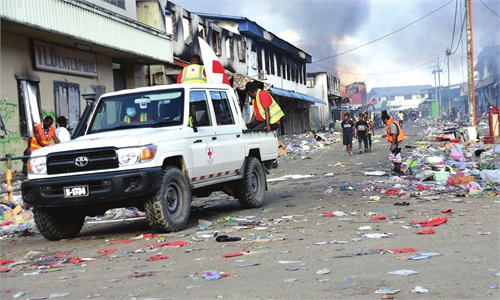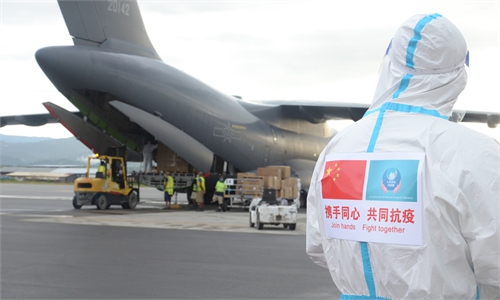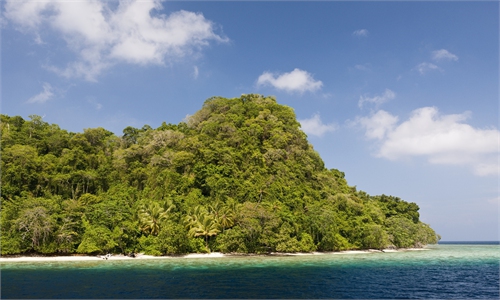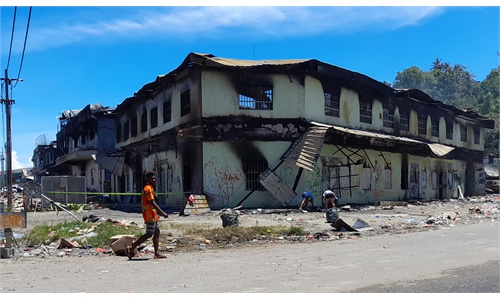China, Solomon Islands ink security cooperation, deriving from need to ‘quell Honiara riots’ in past year
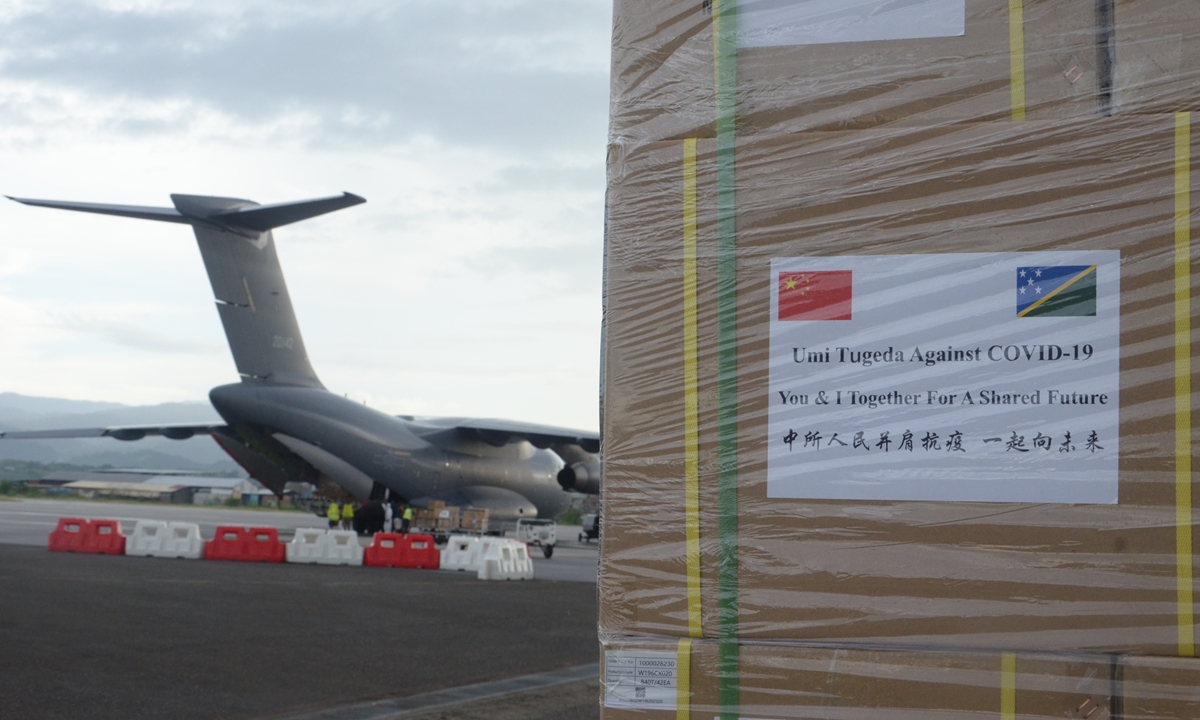
A Chinese PLA Air Force Y-20 transport aircraft carrying medical supplies arrives in Honiara, capital of the Solomon Islands, on February 18. Photo: Courtesy of Chinese Embassy in the Solomon Islands
China and the Solomon Islands signed a bilateral security cooperation framework agreement on Wednesday, the Chinese Foreign Ministry confirmed, which focuses on social security, safeguarding people's lives and properties, human rights aid and other fields.
The cooperation does not target a third party, said Chinese Foreign Ministry spokesperson Wang Wenbin at Thursday's routine news conference. "Pacific countries are a big stage of international cooperation, not some certain country's 'backyard' nor a venue for the competition of great powers."
The framework agreement on security cooperation between China and the Solomon Islands will strengthen cooperation between the two countries in natural disaster response, humanitarian assistance, development assistance, maintenance of social order and other fields, read a statement sent by the Chinese Embassy in the Solomon Islands to the Global Times on Thursday.
The two countries will jointly address both traditional and non-traditional security challenges, and inject positive energy and stability into the Solomon Islands and the regional security environment, the Embassy said.
Wang said that the cooperation between China and the Solomon Islands is based on equality and mutual benefit. "This is the legitimate right of two sovereign states, which is in line with international law and international practice and does not allow external interference."
The Chinese Foreign Ministry spokesperson pointed out that the parties concerned should look at China-Solomon Islands security cooperation objectively and rationally, and stop making irresponsible remarks. "Attempts to provoke, obstruct and damage friendly relations between China and the island nations are unpopular and will not succeed," he said.
Such comments are believed by experts to be related to some recent unfriendly remarks made by Australia and its allies about China's relations with Pacific island countries.
In order to seek a hegemonic position in the South Pacific region, Australia and its allies have been paying attention to and are worried about China's normal security cooperation with the Solomon Islands and other island countries, Yang Honglian, a senior researcher at the Pacific Islands Research Center of Liaocheng University based in Fiji, told the Global Times.
"Australia believes that next, China must take the step to develop a military relationship with the island countries," Yang said. "So Australia is bound to strengthen its influence on the countries and increase the deployment and construction of military bases."
"Australia wants the Solomon Islands to just follow what it says. But after all, it's the US behind all this pushing," Frank Sade Bilaupaine, Policy Consultant at the Foreign Policy Advisory Secretariat at the Solomon Islands Government, told the Global Times.
He pointed out that the security cooperation between China and the Solomon Islands "came about because of the riots in Honiara for the past years and Chinese business is always the victim."
"So Solomon Islands government view it as since now we have official diplomatic relations, maybe China can assist in building the capacity of the Solomon Islands police," he said.
Earlier, after the social unrest in the Solomon Islands in November, China provided a number of shipments of police material assistance to the Solomon Islands upon request and sent a temporary police advisory team to help strengthen the country's police force, which has proved to be effective and welcomed by the government and people of the country, Wang pointed out.
A Chinese businessman surnamed Lin in Honiara told the Global Times on Thursday that the Chinese community supports the cooperation on security very much. He said that the police in the island country lack professional training and their equipment is outdated. "We hope their police force could improve after cooperation with China."

